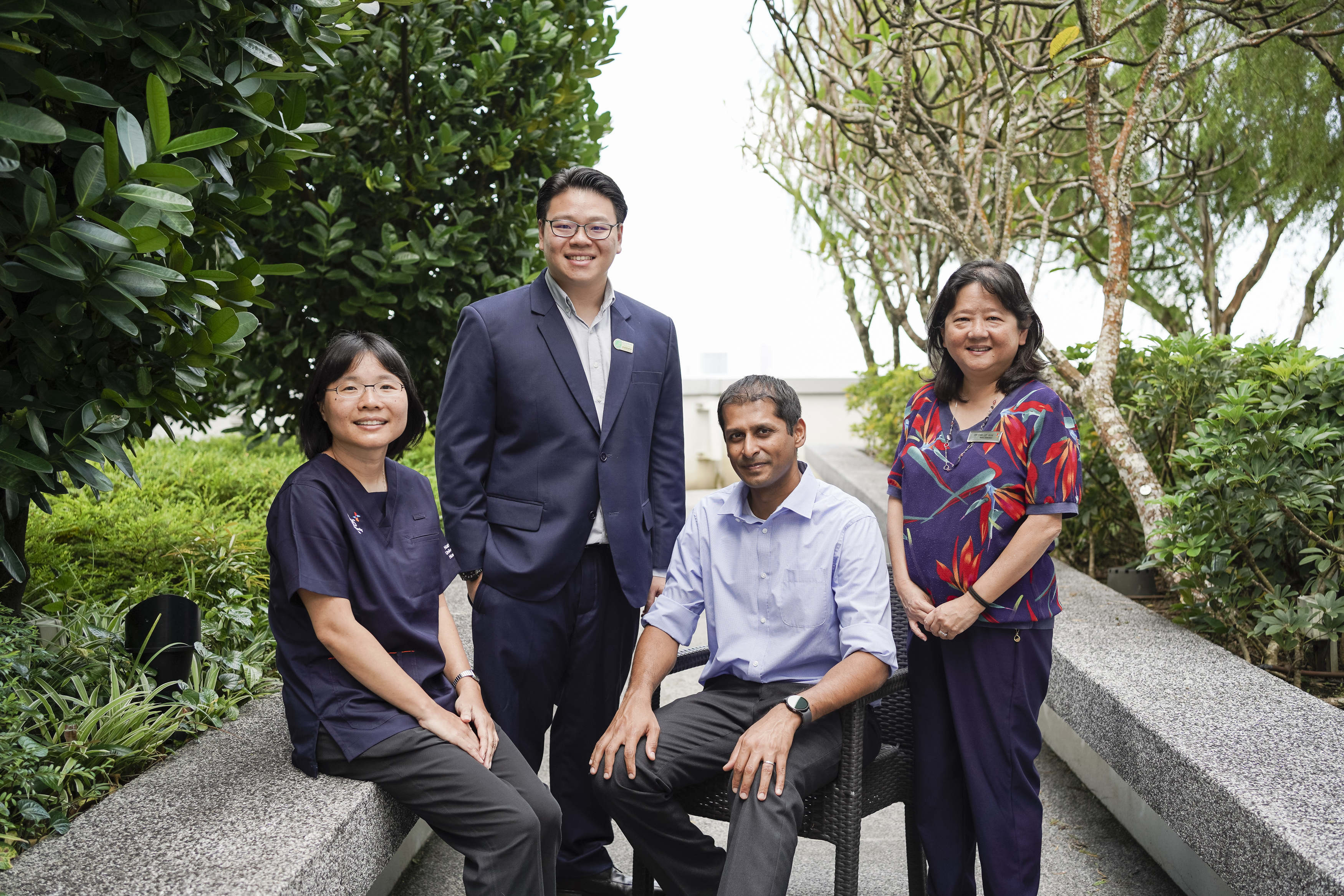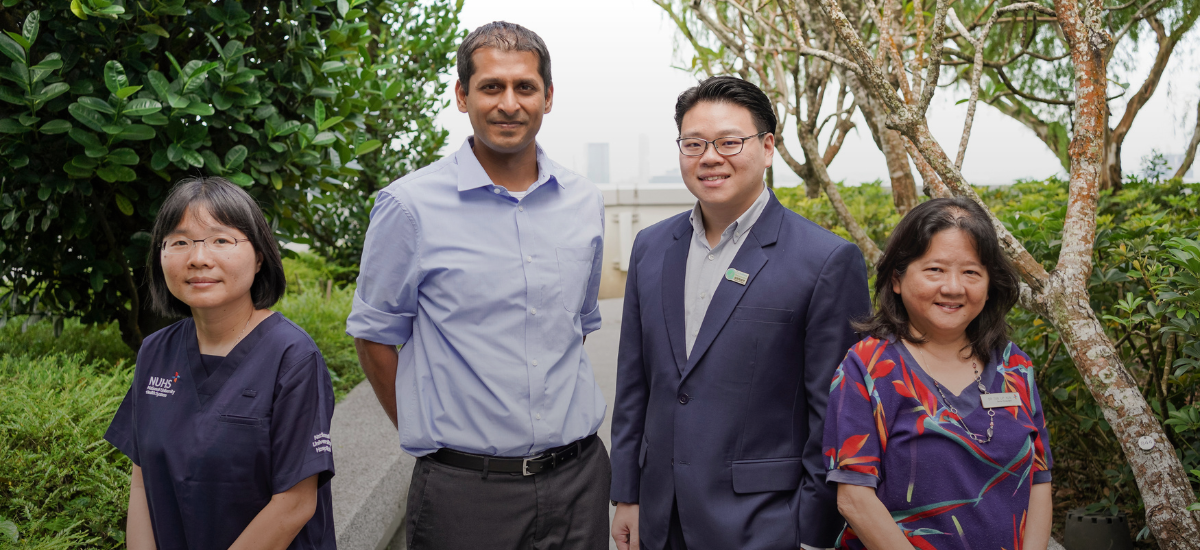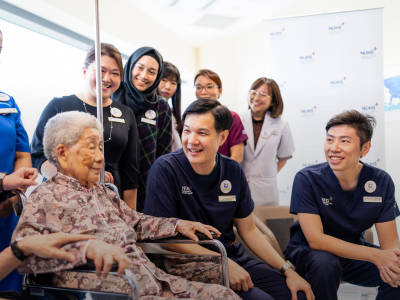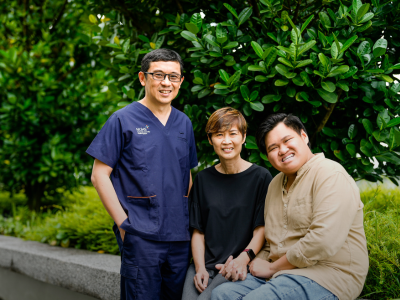Published on 1 April 2023
The National University Cancer Institute, Singapore (NCIS) is set to trial a new and potentially more effective type of chimeric antigen receptor (CAR) T-cell therapy that could increase cancer patients’ access to treatment.
Patients with advanced cancer – including those who have exhausted all their treatment options – could soon be given a fresh chance at recovery and life.
This comes in the form of a new type of chimeric antigen receptor (CAR) T-cell therapy that will be trialled at the National University Cancer Institute, Singapore (NCIS) from April this year.
Currently, CAR-T cell therapy involves grafting CAR –an artificial protein – on a patient’s T cells, which is a type of white blood cell that protects the body from infections and helps fight cancer. These modified CAR-T cells are then reinfused into the patient.
Unlike chemotherapy, which kills fast-growing cancer cells, but also kills or slows the growth of healthy cells, CAR-T cells are programmed to specifically recognise and kill cancer cells.
However, the new therapy – which is being developed by home-grown biotechnology company CytoMed Therapeutics – uses T cells from healthy donors instead, which potentially allows it to battle cancer cells more effectively.
Dr Tan Lip Kun, Senior Consultant, Department of Haematology-Oncology, NCIS, explained, “In autologous CAR T-cell therapies, the T cells are obtained from cancer patients.
“These patients tend to have high-risk, relapsed or resistant cancers, and would have undergone several courses of chemotherapy or other types of immunotherapy, so their own T cells are fewer and weaker. This makes it harder to genetically engineer and manufacture enough CAR-T cells to recognise and fight the cancer cells.”
Dr Tan Wee Kiat, Chief Operating Officer at CytoMed, also revealed that another advantage of the new CAR-T cell therapy is its lower production cost, as he said, “Obtaining immune cells from healthy donors means the starting material would be of high quality and this can potentially improve the quality of modified CAR-T cells. Furthermore, a non-personalised approach can drive down the cost of treatment.”
The new CAR-T cell therapy will be trialled in two phases. The first phase involves the recruitment of healthy blood donors at the National University Hospital (NUH). These potential donors are then put through stringent tests and screened for infectious diseases.
If the donor is selected, his or her immune cells will be isolated from the donated blood and further assessed, before being used for CAR-T cell manufacturing.
In the second phase, suitable patients who have any of six types of advanced cancers that are resistant to standard cancer therapy regimens – colorectal, lung, liver, ovarian, lymphoma and multiple myeloma – will be recruited and shortlisted for the trial.
These patients will receive a course of low-dose chemotherapy prior to weekly infusions of allogeneic CAR-T cells for four consecutive weeks. They will be closely monitored by the clinical trial team of more than 20 doctors and staff during the treatment, as well as during follow-up visits.

Dr Raghav Sundar, Consultant, Department of Haematology-Oncology, NCIS, who is the principal investigator of the trial, emphasised that patient safety would be their key focus during the trial.
“As this technology’s benefits are still very theoretical, we are taking a lot of precautions to see if it is safe, and whether its purported benefits play out. That is why we are not recruiting many volunteers,” said Dr Sundar.
“Because this is a first-in-human trial too, we don’t want to try something completely new on cancer patients who still have multiple options, such as chemotherapy, remaining.”
Ultimately, the goal of the trial is to investigate the safety and tolerability of the new CAR-T cell therapy among patients, as well as determine its optimal dose.
“Cellular therapies form a new frontier of immunotherapy approaches to target cancer and its surrounding microenvironment. While inroads have been made with CAR-T cell therapies in blood cancers, those for solid tumours have had fewer successes,” said Dr Sundar.
“Hopefully, this trial will provide us with the information we need to bring this promising treatment strategy to a broader group of patients with cancer.”
Dr Esther Chan, Senior Consultant, Department of Haematology-Oncology, NCIS, added, “CAR-T cell therapy can be a life-saving treatment for many patients who are given a slim to no chance of survival. We are concurrently doing several trials for autologous CAR-T cell therapies, yet this is the first locally designed trial that uses an allogeneic method to modify cells to fight cancer.”
In consultation with Dr Raghav Sundar, Consultant, Department of Haematology-Oncology, NCIS, Dr Tan Lip Kun, Senior Consultant, Department of Haematology- Oncology, NCIS, Dr Esther Chan, Senior Consultant, Department of Haematology- Oncology, NCIS.



